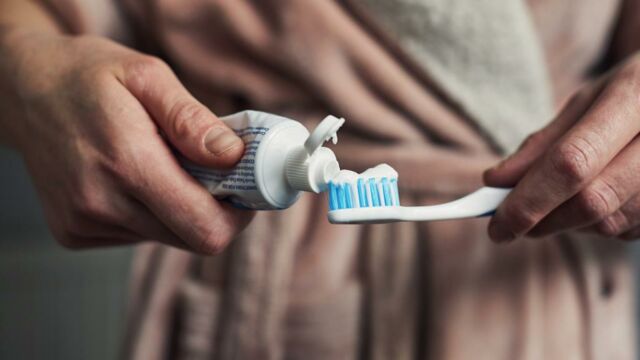According to a new study, those with a COVID-19 infection could be up to nine times more likely to die if they also have gum disease.
Discover our latest podcast
Connections found between oral health and severity of COVID infection
Since the start of the coronavirus pandemic, over 110,000 people have died in the UK. Now, researchers are doing the groundwork in order to discover what factors may make a person more susceptible to severe COVID infections and even death.
A recent study published in the Journal of Clinical Periodontology found that oral health, specifically gum disease could play a part in coronavirus deaths.
In the study, electronic health records from 568 people who contracted coronavirus between February and July 2020 were under review. Of these patients, 40 of them had suffered from complications resulting in intensive care, ventilation and death. Information on these patients was then collected including that on BMI, heart disease, diabetes, asthma, blood pressure, smoking habits and gum disease (periodontitis).
The research found that for those with gum disease, the likelihood of death was 8.81 times higher than those without. Chances of ending up on a ventilator were also increased by 4.57 times while the chances of ending up in intensive care were also increased by 3.54 times. Overall, those with gum disease are 3.67 times more likely to suffer from coronavirus complications.
How does gum disease affect coronavirus infections?
Study co-author Professor Lior Shapira, of the Hebrew University, Israel, explained the correlation between gum disease and severe coronavirus infections, indicating that inflammation and bacteria may be responsible:
The results of the study suggest that the inflammation in the oral cavity may open the door to the coronavirus becoming more violent. Oral care should be part of the health recommendations to reduce the risk for severe COVID-19 outcomes.
Over half of the world’s population over the age of 30 suffer from periodontitis, which creates swelling and around the gums. If left untreated, the inflammation can spread throughout the rest of the body and could eventually reach the lungs. COVID patients who require ventilators could then also be more vulnerable ask they have a higher chance of inhaling oral bacteria. Co-author professor Mariano Sanz, of Complutense University in Madrid, Spain, stated:
This may contribute to the deterioration of patients with Covid-19 and raise the risk of death. Hospital staff should identify Covid-19 patients with periodontitis and use oral antiseptics to reduce transmission of bacteria.
How to prevent gum disease
According to the American Dental Association, you may have gum disease if you:
- Consistently have bad breath or a bad taste in your mouth
- Have separating or loose teeth
- Gums that bleed easily
- Swollen, red or tender gums
- Receding gums
Luckily, gum disease can be easily prevented with a good oral hygiene routine and a healthy diet. Brushing your teeth more than once a day can help to reduce inflammation as well as using specialised toothpaste and mouthwashes.
Getting regular dental cleanings could also help prevent gum disease by thoroughly cleaning away the plaque and tartar that causes it. Dentists can also help detect early signs of the disease and help treat it.
Smoking also greatly affects your chances of developing gum disease. Smoking is known to weaken the immune system, making it harder for the body to fight off this kind of infection. Smoking also makes it harder for the gums to recover from infection.















